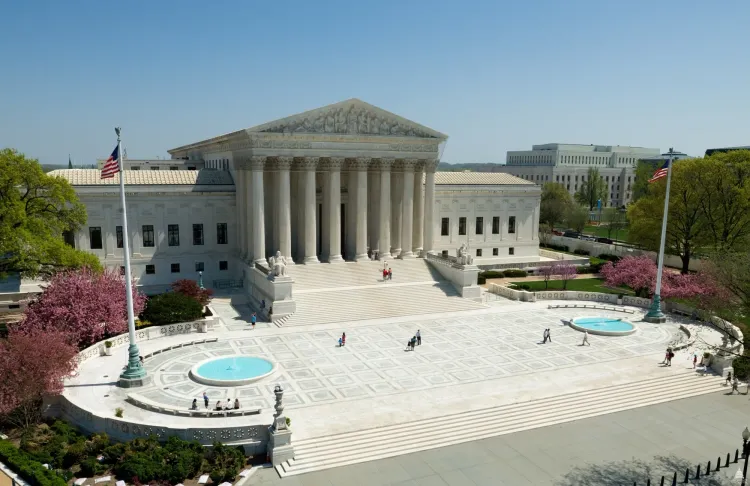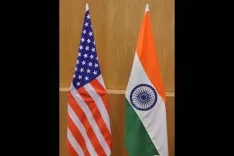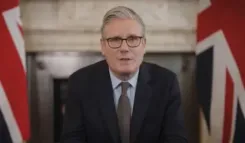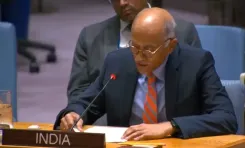Is the US Supreme Court Fast-Tracking Trump's Appeal on Tariffs?

Synopsis
Key Takeaways
- The Supreme Court is expediting the appeal regarding Trump's tariffs.
- The case raises significant constitutional questions about tariff authority.
- Potential refund amounts could reach up to $1 trillion.
- Oral arguments are scheduled for the first week of November.
- Negotiations with India are ongoing, suggesting potential trade agreements.
New York, Sep 10 (NationPress) The US Supreme Court is expediting President Donald Trump’s appeal concerning a judicial ruling that invalidated his tariffs, asserting that he had exceeded his constitutional powers.
In an unsigned directive, the court announced on Tuesday that it will commence oral arguments in this matter during the first week of November.
The Federal Circuit Court of Appeals in Washington upheld a ruling last month from the Court of International Trade made in May, which deemed the reciprocal tariffs imposed by Trump during his trade conflict as illegal.
The appeals court had temporarily suspended its ruling until October 14, and this stay will remain as the Supreme Court deliberates on the appeal.
The Trump administration requested an expedited hearing, arguing that if the court delayed until June under standard procedures and subsequently issued an unfavorable ruling, the government’s finances could face significant repercussions, potentially necessitating refunds ranging from $750 billion to $1 trillion in tariffs.
In a separate ruling on Tuesday, Supreme Court Chief Justice John Roberts stayed a federal judge’s order that required the Trump administration to release $4 billion in foreign aid that Congress had authorized.
Trump is utilizing a method known as “pocket recission,” which allows the government to not spend the funds allocated by Congress in the budget before the fiscal year concludes, consequently returning the unspent money to the treasury.
The tariffs case is centered on the constitutional clause that grants Congress exclusive authority to impose tariffs.
Trump invoked the International Economic Emergency Powers Act (IEEPA) to unilaterally implement the reciprocal tariffs, arguing that trade deficits constituted an economic emergency that justified his tariff decisions.
He imposed a 25 percent duty on India’s exports under these reciprocal tariffs, which were subsequently invalidated by lower court decisions.
Additionally, a 25 percent punitive tariff was placed on oil purchases from Russia, a decision which Homeland Security Secretary Kristi Noem stated was aimed at addressing “threats to the United States” posed by Moscow.
On Tuesday, Trump expressed on Truth Social that discussions with India were ongoing and he was “confident that we will successfully conclude” these negotiations.
“I look forward to speaking with my very good friend, Prime Minister Modi, in the upcoming weeks,” he added.
If a tariff agreement is reached through a bilateral trade deal, the final result of the tariffs case may not influence it.
The Supreme Court is consolidating two distinct tariff-related cases and has set a deadline of September 19 for the involved parties to submit written briefs, October 20 for responses, and October 30 for replies.
Furthermore, the court has restricted the oral arguments to a single hour when it addresses this case.








